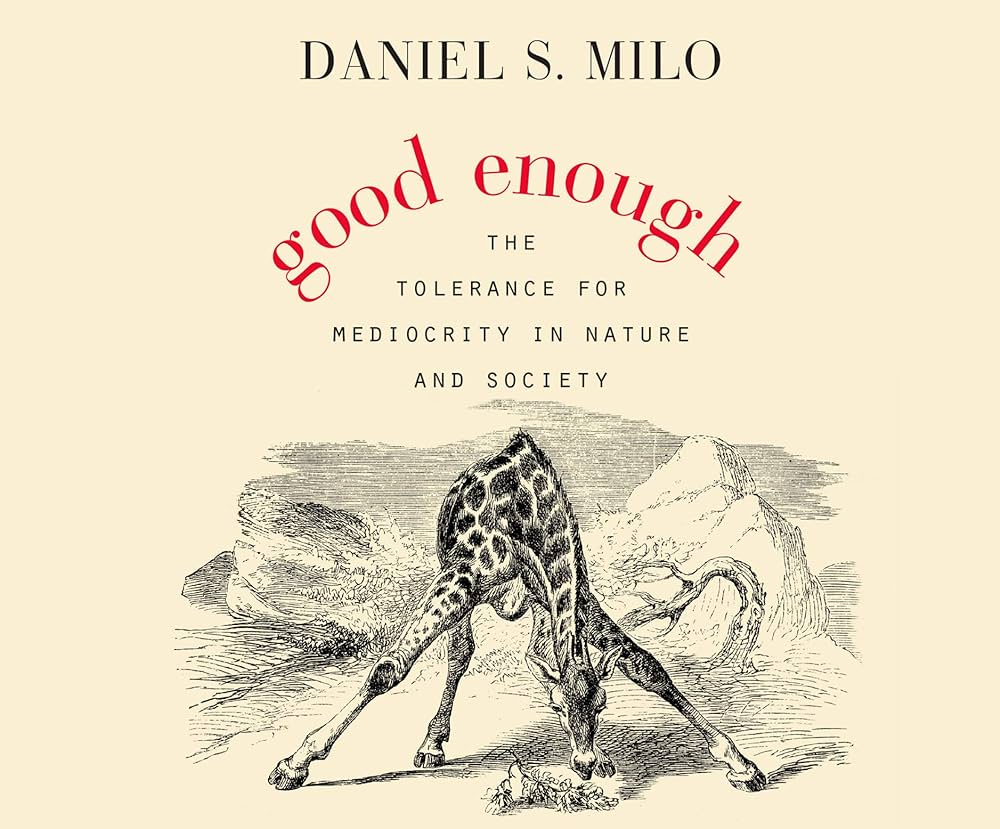
|
Daniel S. MiloGood Enough - The Tolerance for Mediocrity in Nature and Societyp. 24 |
Why should we struggle and strain when we are all good enough?
In chapter 10, I conclude with an exploration of what humanity’s safety net means for ethics, resolving that competition within society is a fool’s game. We need far less excellence than we cultivate. We do it anyway because the best of our neurons, those that rescued us from extinction, are underemployed and overqualified - not because doing so is necessary or even, in many cases, useful. More often, it is crushing. Being excellence-driven myself, I am well placed to know to futility and the masochism of this pursuit. Though our capitalist institutions tell us that we mst constantly strive, that nature ordains competition to be the best and reap the rewards, nature in fact offers no rewards beyond survival and reproduction. Both are assured by a safety net that allows us to be just fine even though we are so much less than optimal. Why should be struggle and strain when we are all good enough?